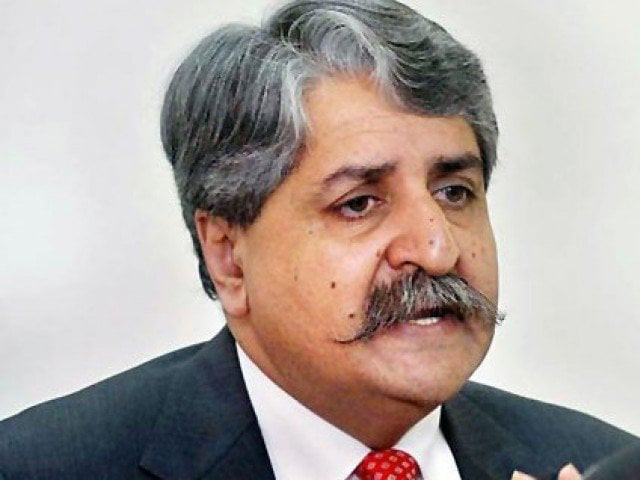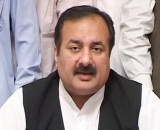MPs seek parliament ratification of debt deals
Finance committee chief calls for end to 'colonial era legacy' as secrecy shrouds $12.7b deposits, $7b loans

Chairman of the National Assembly Standing Committee on Finance Syed Naveed Qamar on Wednesday proposed ratification of foreign debt deals by Parliament to bring transparency and put brakes on the borrowing spree by the finance ministry.
The unrestricted authority of the executive in taking debt is a colonial-era legacy, which should come to an end, said Qamar, a former finance minister and senior leader of the Pakistan People's Party (PPP). He proposed that all debt deals should be ratified by Parliament and in the first phase, the process should begin with foreign debt deals.
His comments came as the government keeps foreign debt deals largely wrapped in secrecy. There is very little public information available on $12.7 billion cash deposits and over $7 billion in foreign commercial loans.
Qamar, who also heads the NA standing committee on finance, was speaking at an event organised by Germany's Friedrich-Ebert-Stiftung (FES) and the Sustainable Development Policy Institute (SDPI) on strengthening the role of Parliament in debt management. He said Parliament has a right to ask for information, and the provision of wrong information is punishable. The Fiscal Responsibility and Debt Limitation Act of 2005 sets the legal boundaries for debt management. However, the law gives only a symbolic role to the legislature, whilst all powers to take loans rest with the finance ministry and the State Bank of Pakistan (SBP).
Qamar also advocated continuation of the International Monetary Fund (IMF) programme, warning that derailment or abandoning it could prove dangerous. "All limits have been crossed and now public representatives should play their roles effectively," said Qamar. Public debt has become unsustainable, and the cost of debt servicing is also on the rise, he added. The finance ministry does not want its ability to borrow hampered, said Qamar.
Pakistan took foreign commercial loans in the past from Gulf banks in a non-transparent manner, said former joint chief economist of the Planning Commission Zafarul Hasan. There should be an independent agency on the lines of the Pakistan Bureau of Statistics (PBS), whose function should only be to gather and report information on all elements of public debt, said Adviser on Finance to Khyber-Pakhtunkhwa Chief Minister Muzammil Aslam.
Prime Minister's Coordinator on Commerce Rana Ihsan Afzal also endorsed the need for bringing clarity on public debt. He supported the independent debt office proposal.
Aslam also emphasised the need for a true definition of public debt. He said that during recent World Bank-organised sessions, it was revealed the quantum of pension liabilities was much over Rs50 trillion. Pakistan's public debt stands at Rs80.5 trillion, whilst total debt and liabilities are reported at Rs94.5 trillion as of June this year.
The government cannot openly discuss external debt due to its implications for the exchange rate, said Director General of the Debt Office at the Ministry of Finance Mohsin Chandna. Pakistan's definition of public debt is below international standards and excludes various components of debt from the purview, said Abdul Rehman Warraich, former Director General of the debt office and incumbent Commissioner at the SECP.
Warraich, who was director general of the debt office at the finance ministry till early 2023, said pension and circular debt liabilities are also not included in the public debt definition. He emphasised the need for improving coverage and timely provision of debt data. Chandna claimed that debt reporting and management is very transparent.
He said that after the IMF declared Pakistan's three-year medium-term debt management strategy outdated due to reduction in interest rates, the new strategy has already been released by the finance ministry.
The director general said that on the IMF's recommendation, the government has also improved the auction calendar of the domestic borrowing plan. However, participants termed it too little, as there is no transparency in timely reporting of external debt.
Pakistan gets zero score in the provision of pre-budget information, said Chief Executive of the Omar Asghar Khan Foundation Rashida Dohad.





















COMMENTS
Comments are moderated and generally will be posted if they are on-topic and not abusive.
For more information, please see our Comments FAQ